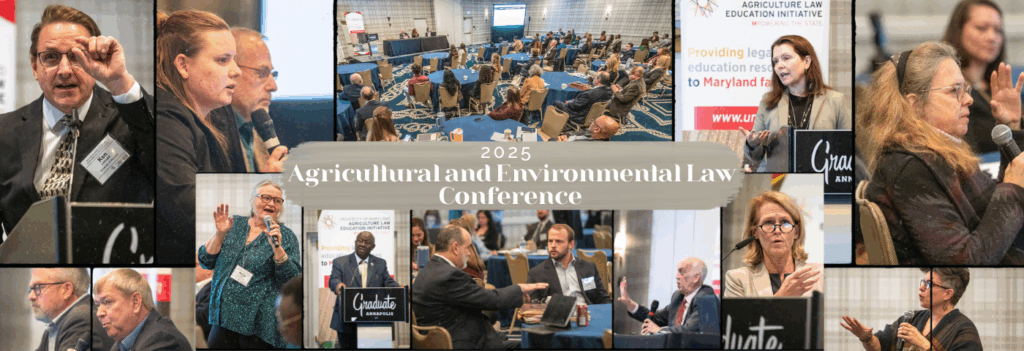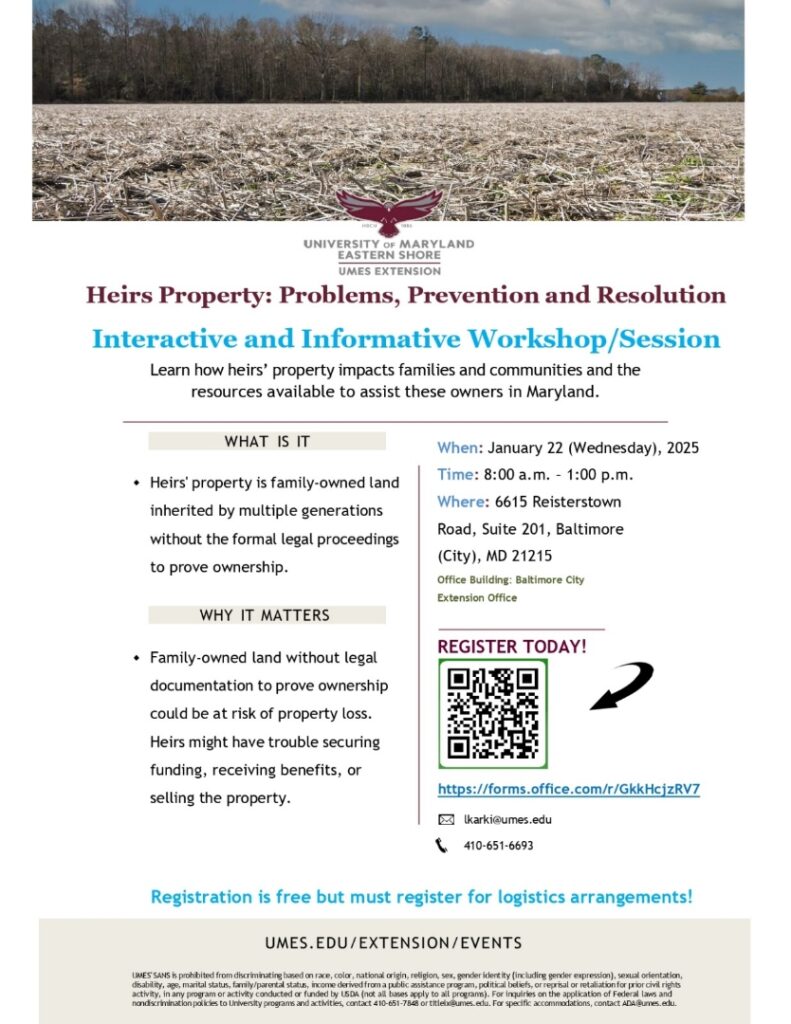Maryland farmers understand the importance of leases in their operations. From land to equipment, Maryland farmers use varying forms of agreements in their business operations. With the leasing of land, leases for a period of less than one year can be oral and there is no requirement the lease be in writing. Even if the lease can be oral, the landlord and tenant should still consider putting the lease in writing to provide both with a written record of the terms agreed to. Any lease longer than one year will be required to be in writing and signed by the parties involved. The tenant will be the one to request a renewal and a landlord can never force a tenant to renew a lease. Termination will depend on either the termination process in the lease or when the lease is silent on termination on state law which requires either the landlord or tenant to give at least 6 months’ notice of the desire to terminate the lease. Unless specified in the lease, a landlord retains no right to reenter the property or to allow new tenants to enter the property to begin preparing fields for planting before the current lease terminates. The landlord can specifically request the right to reenter in the lease. Other issues to consider when negotiating a lease are how to split repair costs, which party will be responsible for noxious weed control, and when the tenant will be required to purchase crop insurance or how crop insurance costs will be split, depending on the type of lease the parties have. This publication will provide an overview of some issues to be considered by both landlords and tenants when negotiating lease agreements.








